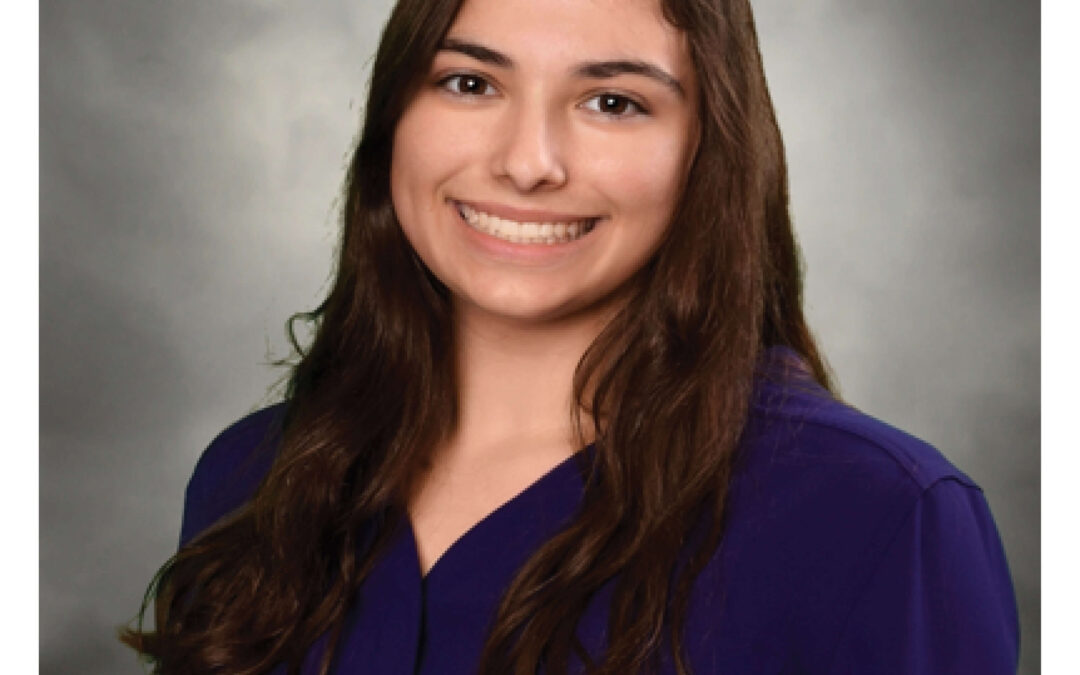Victoria Krummick, Bioengineering
Cancer Scholars Program
What is your educational background and what led you to the U of I?
I am a junior in Bioengineering, and the Cancer Scholars Program (CSP) was actually one of the deciding factors for me on why I came to Illinois. It wasn’t on my radar until I toured the campus and learned about the bioengineering program. It inspired me to go to the university, and it’s the best decision I’ve ever made.
How did you get involved in the Cancer Scholars Program?
My aunt passed away from melanoma skin cancer in 2012 after a 19-month battle. Coming from a large tight-knit family, the loss was incredibly impactful. We created an annual event called March 4 Meg to raise money for melanoma cancer research, but I still wanted to do more. Additionally, my dad fought Hodgkin’s lymphoma, one of my friends in high school was diagnosed with leukemia, and my grandmother had breast cancer twice. All of these occurrences fueled my passion to pursue cancer research and coming to Illinois. After looking up cancer research at the university, I found CSP and applied. I was accepted along with 10 other students, which was one of my proudest achievements, it was really exciting.
What does your research focus on?
I am studying gene mutations that cause some types of breast cancer. Cancer is a very complex disease, and each patient is unique in that their tumors are caused by a different set of mutations. Some of these mutations are recurrent and have been well-characterized because they occur in sequences that are known to code for proteins and, therefore, there is a causal effect. In other words, a mutation leads to an abnormal protein that becomes cancerous. However, about 98% of the human genome does not code for proteins and the vast majority of the mutations that have been identified so far in breast cancer as carcinogenic occur in non-coding regions of the genome. That makes them not only very difficult to understand, but also very difficult to stop tumor growth. My work is focused on creating molecular tools for characterizing tumorigenic non-coding mutations in breast cancers.
How has the Cancer Scholars Program been beneficial?
Not only have I learned a lot about cancer, but it has opened up many research opportunities for me—the connections I’ve made have helped me get into two research labs. Additionally, I was able to learn a lot about FDA testing and clinical trials for pharmaceuticals and medical devices, which is especially helpful for going into industry. Even though I definitely developed professionally through CSP, what makes this program so impactful and unique is the inspiring community within my cohort and between the other Cancer Scholars as well.
What have you learned through your research so far?
We have identified some non-coding mutations that increase the risk of developing breast cancer, and we are now generating cells that recreate the mutations occurring in these patients to study the pathology and engineering effective targeting tools. I work with a senior scientist and participate in multiple stages of the project, from cloning to preparing CRISPR-Cas tools for the isolation of genomic DNA and analysis of mutations including sequencing.
What are your personal interests or hobbies?
Outside of research, I play on the Illinois Women’s Club Volleyball team. I also hold officer positions in the Alpha Omega Epsilon Professional Engineering sorority. I do Tricking, which is a mixture of gymnastics and martial arts, and I’m also an active member in Society of Women Engineers Biomedical society and the Order of Omega. Outside of extra-curricular activities, I love movies, games, photography, knitting, and hanging out with friends.

